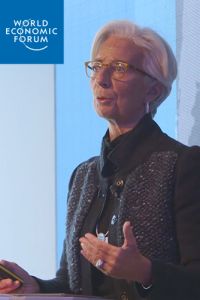Join getAbstract to access the summary!

Join getAbstract to access the summary!
Christine Lagarde
Global Solutions to Global Migration
World Economic Forum, 2016
What's inside?
“The current surge in refugees is a challenge with an upside economic potential.”
Recommendation
The wave of right-wing populism sweeping across Europe and the world has elicited extreme emotional responses on the issue of migration. In this candid lecture, Christine Lagarde, the managing director of the International Monetary Fund, makes a case for migration that eliminates sentiment and presents the barefaced facts. getAbstract recommends Lagarde’s methodical analysis to policy makers responsible for integrating refugees and migrants and to all who want to arm themselves with official economic data that support a pro-migrant position.
Summary
About the Speaker
Christine Lagarde is the managing director of the International Monetary Fund.



















Comment on this summary